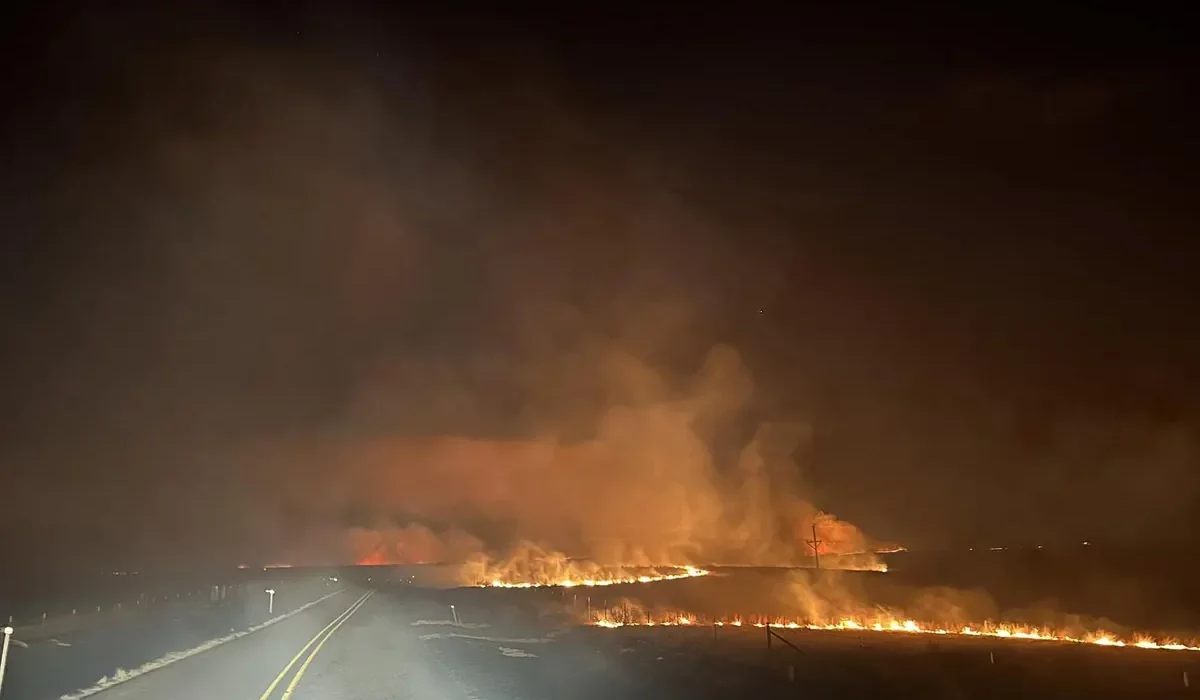As the embers of the Smokehouse Creek Fire continued to smolder across the expansive landscapes of the Texas Panhandle, Xcel Energy found itself thrust into the spotlight of controversy. Amid the charred remnants of a once-vibrant ecosystem, the utility confronted an onslaught of allegations implicating its infrastructure in the devastating conflagration. Investigations into the origins of the inferno pointed to a decayed electrical pole under Xcel’s ownership as a potential ignition point, intensifying scrutiny on the company’s maintenance practices and operational protocols.
In the wake of these revelations, a deluge of lawsuits descended upon Xcel Energy, each seeking recompense for the profound losses incurred. From landowners grappling with scorched acres to families mourning the tragic loss of loved ones, aggrieved parties sought justice and restitution in the courts. The specter of substantial damages loomed large, casting a pall of uncertainty over Xcel’s financial future and regulatory standing.
As the legal saga unfolded, the broader implications of the Smokehouse Creek Fire reverberated across the energy sector and beyond, underscoring the imperative for robust risk management and accountability in the face of escalating climate hazards. For Xcel Energy, the road ahead was fraught with legal complexities and reputational challenges, as the company navigated the turbulent aftermath of a disaster with far-reaching consequences.
Denial Amid Evidence: Xcel’s Legal Battle Unfolds
As the legal battle surrounding the Smokehouse Creek Fire intensified, Xcel Energy remained steadfast in its denial of culpability despite the mounting evidence against it. Amidst accusations of negligence, the utility adamantly maintained that it had fulfilled its obligations in maintaining and operating its infrastructure responsibly.
With lawsuits piling up from landowners and grieving families seeking justice and compensation, Xcel braced itself for a protracted and contentious legal ordeal. The utility’s insistence on its innocence set the stage for a high-stakes showdown in the courtroom, where the validity of its assertions would be rigorously tested against the weight of evidence and the scrutiny of the law.
Despite the tumultuous legal landscape and the specter of significant financial liabilities, Xcel Energy remained resolute in its defense, determined to vigorously contest the allegations leveled against it and safeguard its reputation and interests in the face of adversity.
A Nationwide Phenomenon: Utilities Under Fire
The litigation frenzy surrounding Xcel Energy reflects a broader pattern of legal accountability sweeping across major electrical utilities nationwide. From the notorious Pacific Gas & Electric in California to Oregon’s PacifiCorp, these industry giants find themselves embroiled in legal battles, grappling with the fallout of devastating wildfires and the ensuing claims for damages.
The scale of settlements in these cases has been staggering, with utilities facing demands for billions of dollars in compensation. This wave of litigation marks a seismic shift in how accountability is perceived and enforced within the industry. No longer are utilities shielded from the consequences of their actions; instead, they are held directly responsible for the havoc wreaked by their infrastructure on communities and ecosystems.
As these legal battles unfold, they serve as a stark reminder of the profound impacts of corporate negligence and the urgent need for stricter regulations and enhanced safety measures. The era of utilities operating with impunity is coming to an end, replaced by a new paradigm where accountability and responsibility reign supreme.
The Legal Landscape: Determining Negligence
At the heart of the legal battle in Texas lies the pivotal issue of defining negligence within the context of utility operations. The focus intensifies on Xcel Energy’s actions regarding the decayed pole, particularly the perceived delay in repairs. Legal analysts and industry experts closely examine the utility’s adherence to maintenance protocols and the adequacy of its response to known risks.
The outcome of this scrutiny holds significant implications, not only for Xcel Energy’s liability in the Smokehouse Creek Fire but also for shaping future utility regulations and infrastructure management practices. A determination of negligence could lead to substantial financial repercussions for Xcel and may prompt regulatory reforms aimed at bolstering safety standards and oversight. Conversely, a ruling in Xcel’s favor may reinforce existing industry norms but would still underscore the critical importance of proactive risk mitigation in preventing similar incidents.
Climate Change Amplifies Risks: Utilities Grapple with Escalating Threats
As climate change exacerbates the frequency and intensity of wildfires, utilities face mounting pressure to fortify their infrastructure against the ravages of nature. With the Texas Panhandle experiencing an uptick in “fire weather” conditions, experts warn of the escalating risks posed by extreme temperatures and high winds, underscoring the urgent need for proactive measures to mitigate future catastrophes.
Shifting Paradigms: From Liability to Public Ownership
Amid the specter of bankruptcy and regulatory upheaval, industry titans like Warren Buffett contemplate the future of utility models in the face of mounting legal and financial pressures. As the threat of zero profitability looms large, stakeholders ponder the potential resurgence of public power models, signaling a potential paradigm shift in the governance of electrical infrastructure.
In the wake of the Smokehouse Creek Fire, Xcel Energy finds itself at the nexus of a legal maelstrom, grappling with the fallout of a disaster that underscores the pressing need for resilience in an era defined by escalating climate risks.

